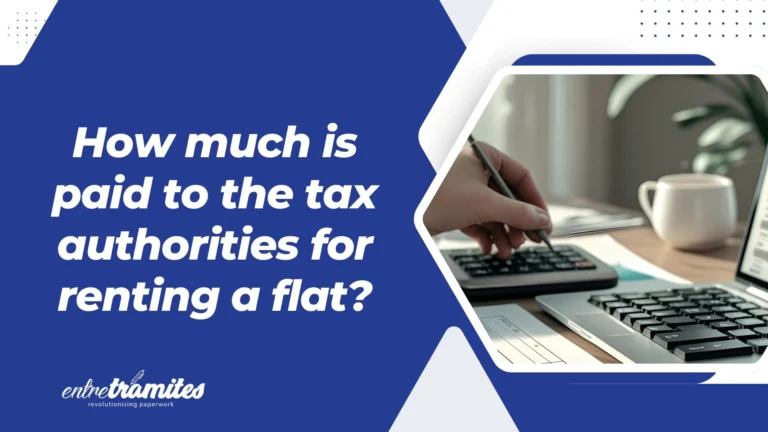If you’re a property owner in Spain, understanding your tax obligations is essential. This guide explains how to declare your rental income tax, what expenses you can deduct, and how to take advantage of significant tax reductions available in 2025. This information is key for any landlord or investor seeking financial clarity and peace of mind.
Understanding the Tax on Your Rental Income
In Spain, income from renting a residential property is classified as “income from real estate capital” (rendimientos de capital inmobiliario) and must be declared in your Personal Income Tax (IRPF) return.
The calculation is straightforward:
- Declare all rental income tax received from your tenants.
- Subtract all eligible deductible expenses.
- Apply the corresponding tax reduction on the net income.
This process allows you to pay tax only on your net earnings, not the gross rental price.
Significant Tax Reductions under the Spanish Housing Law
The original text mentions a 50% reduction, but a key update introduced by Law 12/2023 (the Spanish Housing Law) has significantly changed these rules. As of 2025, the reduction applied to your rental income depends on your specific situation.
The goal of this law is to encourage landlords to lower rents and provide more affordable housing. Here are the potential reductions you can apply:
- 90% reduction: If your property is located in a designated “stressed residential market area” (zona de mercado residencial tensionado) and you sign a new contract with a rent reduction of at least 5% compared to the previous one.
- 70% reduction:
- If you rent to a young person aged 18 to 35 in a stressed area.
- If you rent the property to a public administration or a non-profit for affordable social housing.
- 60% reduction: If the property has undergone a rehabilitation or renovation project within the two years prior to the contract signing.
- 50% reduction: The general reduction that applies in all other cases, including properties not located in a stressed area.
Deductible Expenses: Maximise Your Savings
To reduce your rental income tax liability, it’s crucial to accurately deduct all eligible expenses. Remember to keep all receipts and invoices (facturas) as proof.
Common deductible expenses include:
- Mortgage interest: The interest portion of your mortgage payments.
- Repairs and maintenance: Costs for upkeep, such as painting or plumbing repairs, but not for improvements or expansions.
- Local taxes: Property tax (IBI), waste collection fees, and other local levies.
- Insurance premiums: Home, rental protection, and liability insurance.
- Community fees: Payments to the homeowners’ association (Comunidad de Propietarios).
- Amortisation: You can deduct 3% of the property’s construction value (excluding the land) each year, and 10% of the value of any furniture.
Filing Your Rental Income: Forms and Deadlines
As a Spanish tax resident, you must declare your rental income tax as part of your annual IRPF return, which is submitted via Modelo 100. This form is typically filed between April and June of the following year (e.g., the 2025 tax return is filed in 2026).
- For residential rentals: The net income and applied reductions are reported in the “Real Estate Assets” section of Modelo 100.
- For business rentals: If you rent to a company or a self-employed professional, you may need to apply a 19% withholding tax on the rent. This must be declared quarterly using Modelo 115 and annually via Modelo 180.
Frequently Asked Questions
Can I deduct IVA (VAT)? No. The rental of residential property is exempt from VAT in Spain, so you cannot deduct any VAT on expenses.
Can I deduct unpaid rent from a tenant? Yes, you can deduct unpaid rent as a bad debt, but only if you have exhausted all legal options to collect it and can prove the non-payment, for example, through a court order or bankruptcy proceedings.
Is there an additional tax for non-residents? Yes. Non-resident property owners must pay Non-Resident Income Tax (Impuesto sobre la Renta de No Residentes or IRNR) via Modelo 210. The tax rate is 19% for EU/EEA residents, who can deduct expenses, and 24% for non-EU residents, who generally cannot.
Understanding how to declare your rental income and what deductions and reductions apply is crucial for any property owner in Spain. The rules introduced by Law 12/2023 offer significant tax benefits, especially in designated “stressed areas,” which can drastically reduce your tax bill. By accurately calculating your deductible expenses and staying up-to-date with tax obligations, you can ensure financial peace of mind and operate confidently in the Spanish rental market.
Need expert help to navigate your rental income tax in Spain? We provide personalised assistance to help you calculate your returns, apply the correct deductions and reductions, and manage all fiscal aspects of your property portfolio. You can also contact us directly through this contact Form for us to call you, or if you prefer, you can schedule a free consultation or write to us on WhatsApp. We’re here to make the process easier for you!.





